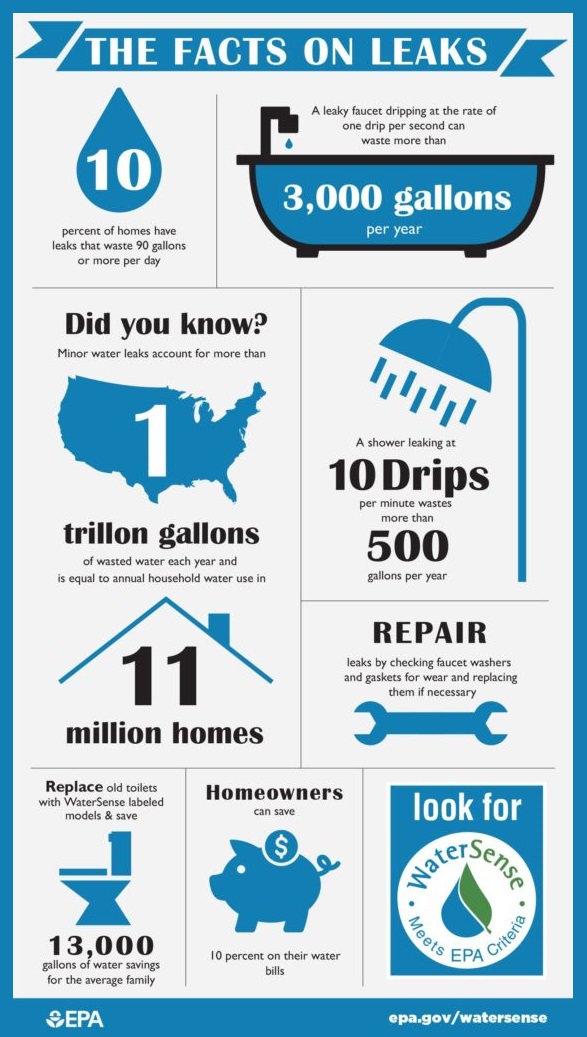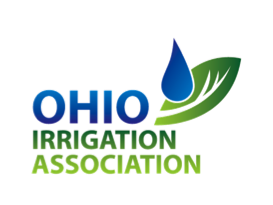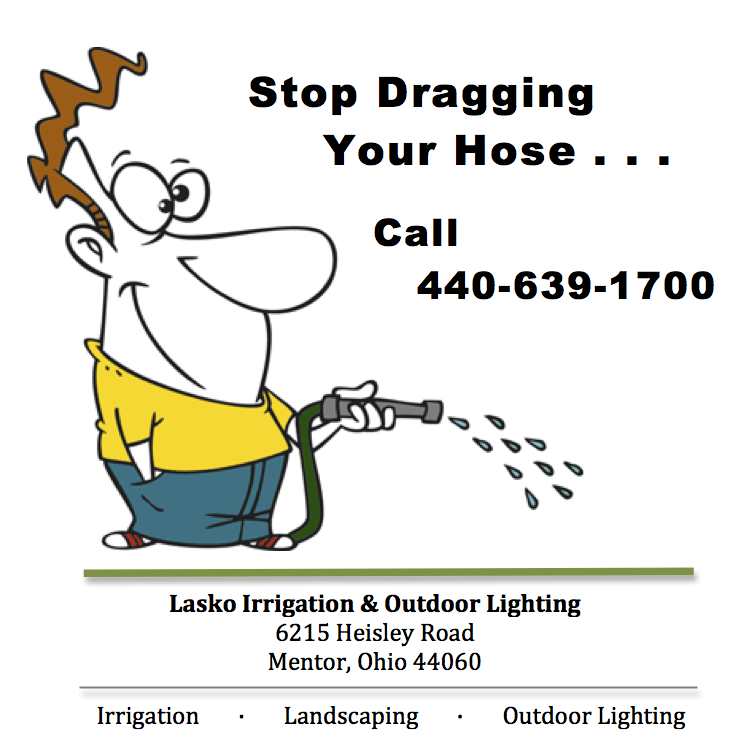Fix-a-Leak Week
Celebrates 10 Years
Did you know….
Each year, household leaks can waste more than 1 trillion gallons of water nationwide? That amount is:
- Enough to fill 40 million swimming pools and 24 billion bathtubs
- Almost equal to the capacity of Florida’s vast Lake Okeechobee
- Equal to the annual household water use of more than 11 million homes
Plug That Leak!
The EPA’s “Fix a Leak Week” is a national effort to stop that waste. This year commemorates the 10th anniversary of the event, which runs from March 19 through March 25.

Leaky kitchen and bathroom faucets, malfunctioning toilets and errant sprinkler systems cause much of the water waste. Fixing some of these easily corrected household leaks can save homeowners about 10 percent on their water bills, according to the EPA.
Karen Wirth is in charge of marketing and outreach for the EPA’s WaterSense program. In her view, most folks are clueless about the total amount of water wasted because they “see a couple of drips coming out of their shower head, or sprinkler outside, or faucet, it doesn’t seem like that much.”
So each year, the EPA hones in on the drips during Fix a Leak Week. Special events are planned from coast to coast to teach homeowners how to find and fix household leaks. To download the EPA’s Fix a Leak fact sheet click, click here.
Easy Fixes
There’s a simple way to check for leaks in the toilet, Wirth said. “Just put a few drops of food coloring in the tank. If that shows up in the bowl, you have a leak.” This problem can often be fixed by simply replacing the flapper.
Replacing old and worn faucet washers and gaskets fixes most faucet leaks.
For leaky shower heads, use pipe tape to secure the connection between the showerhead and the pipe stem.
For the EPA’s complete list of leak fixes, click here.
Call a Professional
Irrigation systems can be another problem area. But this one is best left to the professionals.
“An irrigation system that has a leak 1/32nd of an inch in diameter (about the thickness of a dime) can waste about 6,300 gallons of water per month,” according to the EPA.
They suggest that homeowners consult an irrigation professional certified by WaterSense to check for leaks throughout the system.
Sources:
EPA
The Washington Post
Alliance for Water Efficiency






